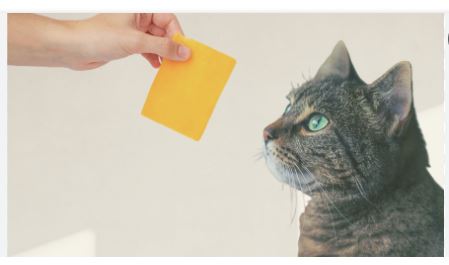Cats are known for being finicky eaters, often displaying a preference for certain types of food. As pet owners, we may want to share our meals with them, and one of the common foods we might consider offering our feline companions is cheese. After all, many of us have heard the age-old myth that cats love cheese, thanks to cartoons and popular culture. But is it safe to give cheese to cats? Let’s explore whether cheese is a suitable treat for your furry friend and understand the potential benefits and risks.
The Nutritional Content of Cheese
Cheese is a dairy product that comes in many forms, ranging from cheddar to mozzarella to cream cheese. It’s made by coagulating milk proteins, which are then processed and aged to create the final product. Cheese is rich in protein and fat and contains beneficial nutrients like calcium, phosphorus, and vitamin A. However, it also has high levels of sodium and lactose, which are worth noting when considering whether it’s safe for cats.
Lactose Intolerance in Cats
Most adult cats are lactose intolerant, which means they lack the enzyme lactase needed to properly digest lactose, the sugar found in milk and other dairy products. While kittens can digest their mother’s milk thanks to the enzyme, this ability diminishes as they grow older. As a result, adult cats often experience digestive issues when consuming dairy products like cheese. Symptoms of lactose intolerance in cats can include:
- Diarrhea
- Vomiting
- Stomach cramps
- Gas and bloating
Since cheese contains lactose, feeding it to a lactose-intolerant cat could lead to gastrointestinal distress. This is particularly concerning if your cat consumes a large amount of cheese, as it could upset their stomach for several hours or even days.
Can Cheese Be Safe for Cats?
While most cats are lactose intolerant, some cats may tolerate small amounts of cheese without any issues. This is because not all cats are equally affected by lactose, and some might have a higher tolerance for dairy products. However, this does not mean that cheese should be a staple in your cat’s diet.
If you decide to offer cheese to your cat, it’s important to do so in moderation. A tiny amount of cheese, such as a small cube or a sliver, is less likely to cause problems. Keep in mind that cheese is a treat, not a necessary part of your cat’s nutrition. Cats are obligate carnivores, meaning their bodies are designed to thrive on meat, not dairy. Cheese does not provide any essential nutrients that your cat cannot obtain from their regular diet.
The Risks of Feeding Cheese to Cats
There are a few risks to consider before offering cheese to your cat:
- Digestive Issues: As mentioned earlier, lactose intolerance can lead to digestive upset. Even small amounts of cheese can cause discomfort in sensitive cats, so it’s important to monitor their reaction after offering any dairy product.
- High Fat and Calories: Cheese is calorie-dense and contains high levels of fat, which can contribute to weight gain and obesity if fed in excess. Obesity is a serious health concern for cats, leading to a variety of complications such as diabetes, joint problems, and decreased lifespan.
- Sodium Content: Many types of cheese, especially processed varieties, are high in sodium. Too much salt can be dangerous for cats, leading to dehydration, kidney problems, and high blood pressure. Excessive sodium intake can even be fatal in extreme cases.
- Additives and Flavors: Some cheeses contain added ingredients such as garlic, onions, or herbs that are toxic to cats. Always ensure that any cheese you offer is free from these harmful additives.
Benefits of Cheese for Cats
Although cheese is not a necessary part of your cat’s diet, there are a few potential benefits when offered sparingly:
- Protein: Cheese contains protein, which is essential for a cat’s muscle development and overall health. While protein from cheese may not be as high-quality as the protein found in meat, it can still provide a minor nutritional boost.
- Palatability: Some cats love the taste of cheese, and it can be used as a training tool or reward when teaching your cat new tricks. In these cases, small amounts of cheese may be a good motivator, especially for picky eaters.
- Variety: Offering different textures and flavors, such as cheese, can make mealtime more interesting for your cat. However, this should never replace their primary source of nutrition, which should be high-quality cat food designed for their dietary needs.
Conclusion: Is Cheese Safe for Cats?
In conclusion, while cheese is not toxic to cats, it is not an ideal or necessary food for them. Most cats are lactose intolerant, meaning cheese can cause digestive problems such as diarrhea and vomiting. Even if your cat seems to tolerate cheese, it should only be offered in very small amounts as an occasional treat.
If you want to share a tasty snack with your cat, there are plenty of safer alternatives, such as commercially available cat treats or small pieces of cooked meat, that can provide nutritional benefits without the risk of digestive upset. Always consult your veterinarian before introducing new foods to your cat’s diet to ensure their health and well-being. Remember, moderation is key when it comes to feeding any human food to pets, including cheese.
